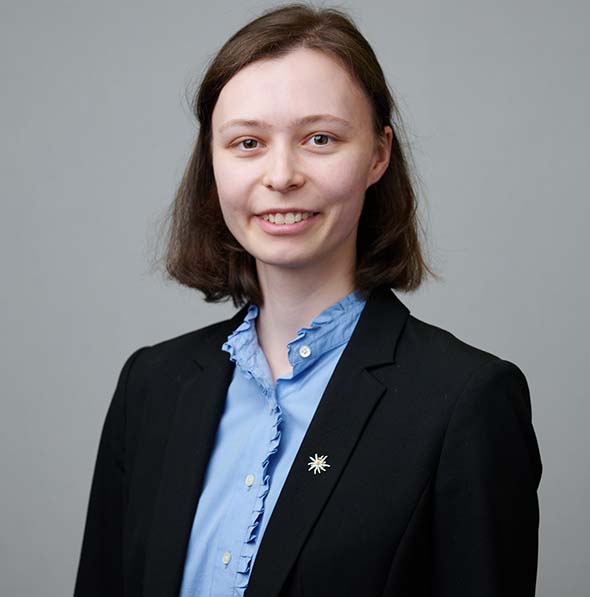Bridging Atomic and Macroscopic Scales:
The Role of the Structure Parameter in Brittle Fracture
Rachel Morin
Ph.D. Candidate
Physics Department
The Catholic University of America
Wed, April 30, 2025 - 4:00 PM
In Hannan 108 (Auditorium) and on Zoom  From coastlines to snowflakes, fractal geometry is common in nature. Fractal geometry is also seen in the self-similar patterns observed on fracture surfaces. Experimental observations of several brittle materials have shown that the fractal dimension (D*) of fracture surfaces is related to the fracture toughness (KIC) of a material:
From coastlines to snowflakes, fractal geometry is common in nature. Fractal geometry is also seen in the self-similar patterns observed on fracture surfaces. Experimental observations of several brittle materials have shown that the fractal dimension (D*) of fracture surfaces is related to the fracture toughness (KIC) of a material:
![]()
where E is the elastic modulus, and is a structure parameter, which is constant for a given material. In addition to experimental measurements at the macro-scale, has also been calculated at the atomic level of fracture for amorphous silica (a-silica), using the strain fraction before and after fracture of single SiO4 ring structures, present in the short-range order of the material. It was observed that the ring structures contracted into smaller size rings during fracture, which propagated the crack front in a material. The calculations for at the atomic scale were within the same order of magnitude as experimental measurements. The ability to calculate at the atomic scale can improve the way materials are designed from first principles to resist fracture. However, a more rigorous calculation is necessary to identify as a link between length scales of fracture. The focus of this present work is to expand these measurements of to larger structures of a-silica to verify this atomic-scale calculation method. We use quantum molecular orbital methods and density functional theory (DFT) to calculate a0 for structures up to 1nm in diameter. Our results show that in addition to ring contraction, that a ring expansion is also possible during the fracture process. The atomic calculations of for both ring contraction and expansion on average fall within the experimental range for glass.
If you have any questions about the Colloquium Series, would like to request disability accommodations or would like to make a donation please contact the Physics Department, cua-physics@cua.edu or call (202) 319-5315.
